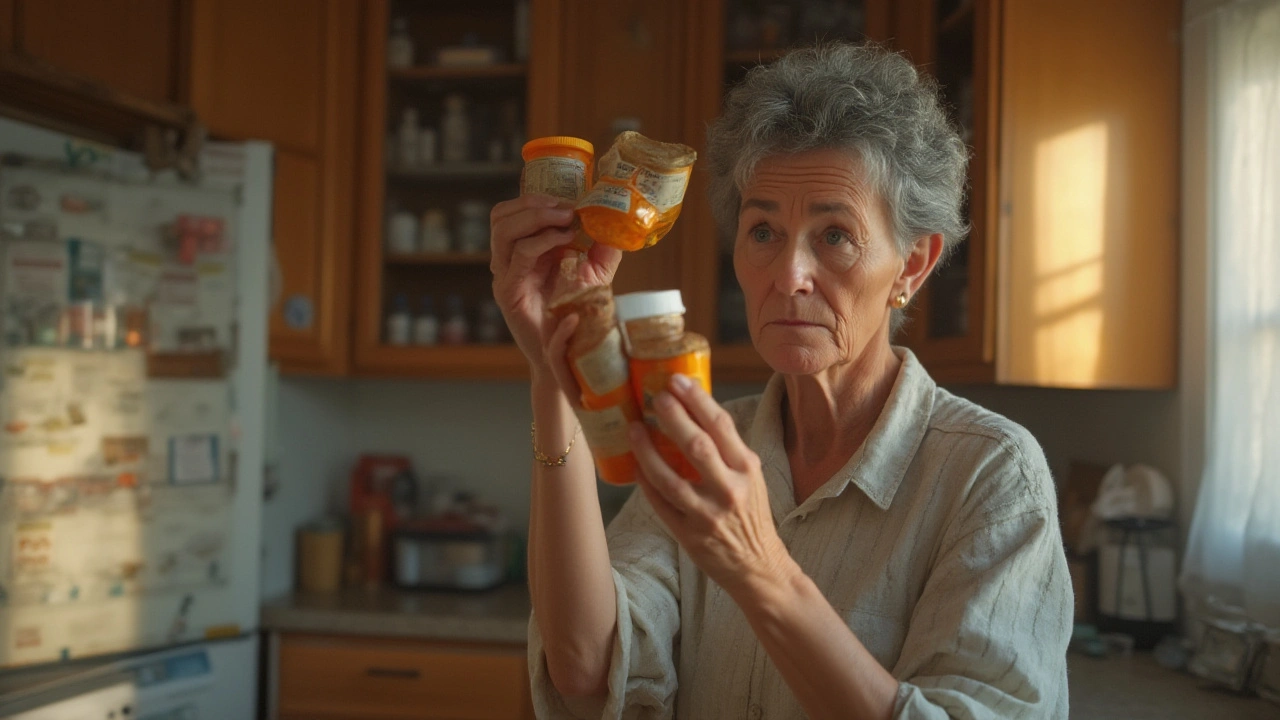Ever found a half-empty bottle of pills in your cabinet and wondered what to do with it? You’re not alone. Tossing meds in the trash or flushing them down the toilet is a common quick fix, but it’s also a shortcut to bigger problems. It messes with our water supply, risks local wildlife, and even stirs up safety issues at home.
So what’s the safest way to clean out your medicine drawer? First rule: never flush meds unless the label or your local pharmacy tells you it’s OK. Pharmaceuticals in water can sneak past typical filters and harm fish, affecting the whole food chain, including us. Studies from groups like the EPA have shown trace meds in rivers and lakes across the US. Not great, right?
Your next best bet: drug take-back days or permanent drop-boxes. Many pharmacies in North Carolina and across the US offer free options. The DEA hosts regular collection events, and some local police stations have a drop box in the lobby year-round. It’s as easy as bagging up the pills (keep them in the bottle, but scratch out your info) and dropping them off. No awkward questions, no fuss.
Got no drop-off nearby? The FDA suggests mixing meds with gross things like used coffee grounds or cat litter, then sealing it in a bag before tossing it in the trash. That way, pets and kids won’t get into them, and they’re less likely to be stolen.
But what about sharp items—like needles or EpiPens? Those should never go in the regular trash or recycling. Most places have special rules for sharps; some pharmacies sell special containers, and certain hospitals take them back for you.
Travelers, listen up: packing meds for vacation is smart, but don’t bring back bottles you’ll never finish. Plan what you need and leave the rest. And for parents, lock up all meds—expired or not—so curious kids stay safe.
Thinking about the environment is more important than ever when it comes to old medication. Every pill you dispose of properly is one less risk for your family, your neighbors, and nature. Even small actions, like talking to your local pharmacist about safe disposal, can make a difference. Next time you clear out your purse or cabinet, remember: safe disposal is everyone’s job, and it’s easier than you think.
For more specifics, check out your city or county website. Rules can change, but good habits last. And if you’ve got questions, your doctor, pharmacist, or even your local hair salon probably has tips—they deal with this stuff all the time too!

Are expired drugs dangerous? Find out how old medication can actually harm you, what risks you need to know, and how to safely discard unused medicines from your cabinet.